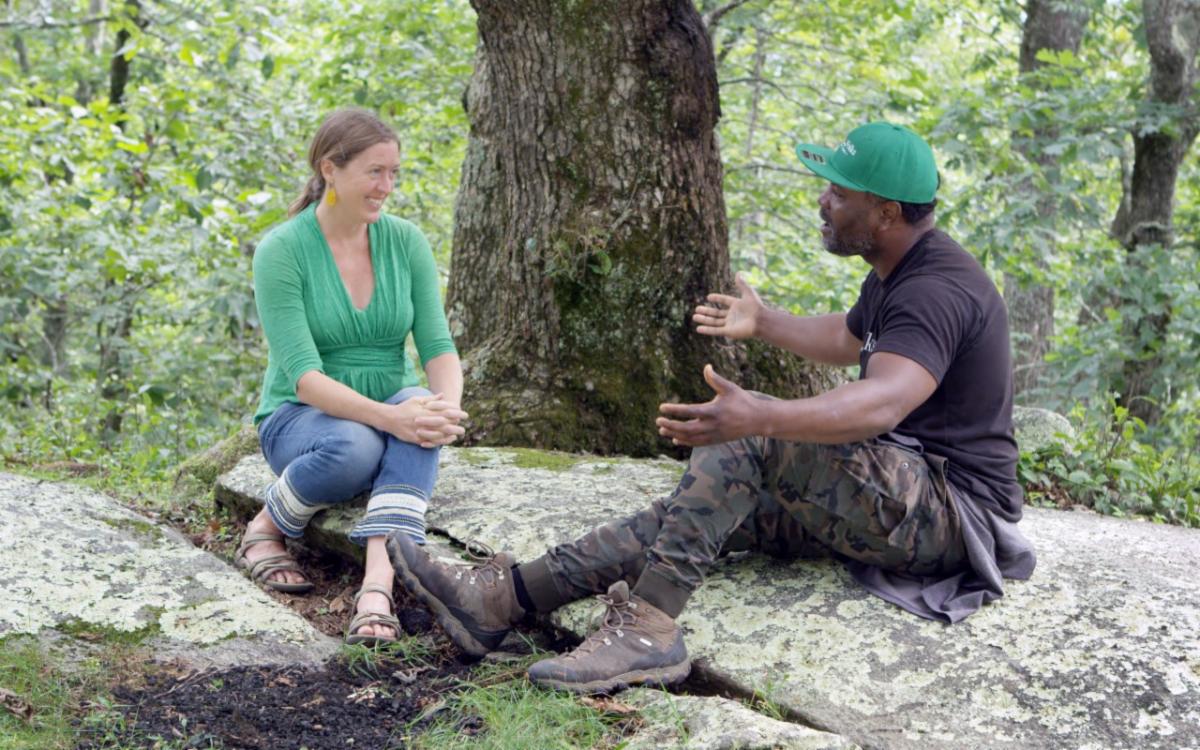Historically, at Conserving Carolina, we have mistakenly regarded issues of equity and social justice as separate from our conservation mission. In doing so, we have excluded many people from our cause and reinforced systems of injustice. Today, we recognize that social justice issues are, in fact, central to our mission to protect, restore, and inspire appreciation of the natural world.
In February 2020, Conserving Carolina adopted a five-year Strategic Plan that embodies this understanding. In this plan, our Board of Directors and staff identified Equity as both a core value and one of five strategic directions to guide our work.
Why We Need to Do Better
Displacement and exclusion of certain groups from the land is deeply woven into the history of our country—from the removal of Native peoples, to discrimination against Black farmers and aspiring homeowners, to segregated campgrounds at our national parks. In addition, people of color and the poor often suffer from the worst effects of environmental degradation, such as air and water pollution and the impacts of climate change. We recognize that the deep inequities engrained in our nation have shaped the conservation movement, which has disproportionately served white people, especially those with greater socioeconomic privilege.
We can and must do better. There are many reasons why a commitment to equity and social justice must be central to our work:
- The wellbeing of all people is tied to a healthy environment and a connection with the living world. All people deserve to experience these benefits, which allow them to live their fullest lives. When people are living to their fullest potential, these benefits ripple out and strengthen our whole communities.
- Healing relationships among people and healing our relationship with the rest of the natural world are not two separate tasks. They are part of the same task—to move beyond systems of exploitation and abuse, toward systems that support mutual flourishing.
- We face daunting challenges—so we need more problem solvers. By including people with a wider range of backgrounds, points of view, and expertise, we are better able to understand the world around us, innovate, and solve hard problems.
- Land trusts need a broader and younger base of support. In the United States, people of color hold growing political, cultural, and economic influence, and younger generations are significantly more diverse than older generations. We cannot afford to engage only an increasingly narrow segment of our population.
Equity, Diversity, and Inclusion
As we work toward a more just society, we seek to improve equity, diversity, and inclusion in our work. Here’s what we mean by those terms:
Equity refers to fair outcomes. Since all people are fundamentally equal, in a just society, we should be able to achieve similar outcomes, regardless of our group identities. Instead, different groups face very different sets of advantages and disadvantages, leading to serious disparities.
Diversity means that different kinds of people are involved. Diversity can refer to numerous dimensions of identity, such as race, ethnicity, education, wealth, age, sex, gender, sexual orientation, ability, appearance, values, perspectives, and beliefs.
Inclusion means that diverse individuals can participate authentically and fully, without barriers based on their identity. A culture of inclusion welcomes differences and treats all participants with respect.
Our Goals for Improvement
Conserving Carolina is committed to improving equity, diversity, and inclusion, as part of our conservation mission. As we move forward, we are guided by our core value of Equity, as stated in our Strategic Plan: “We will include, benefit, and empower people of differing views, experiences, and identities.”
We regard this as a continuous process of listening, learning, and growth. We have also committed to the following goals:
- Provide continued training and education for our board, staff, and AmeriCorps members, and volunteers.
- Recruit more diverse board, staff, and AmeriCorps members, and volunteers.
- Strengthen relationships with people of color and organizations representing communities of color.
- Cultivate an inclusive workplace culture, rather than a white dominant culture.
- Analyze power dynamics within our organization and identify goals for change.
- Update all organizational policies and procedures to support our goals for equity, diversity, and inclusion.
- Represent diverse individuals authentically in our storytelling and communications.
- Continuously reflect on our progress and identify ways to improve.

See Stories About Equity in the Outdoors
This is an ongoing commitment, and we continue to work with our communities to make the great outdoors a more welcoming and inclusive place for all people.
